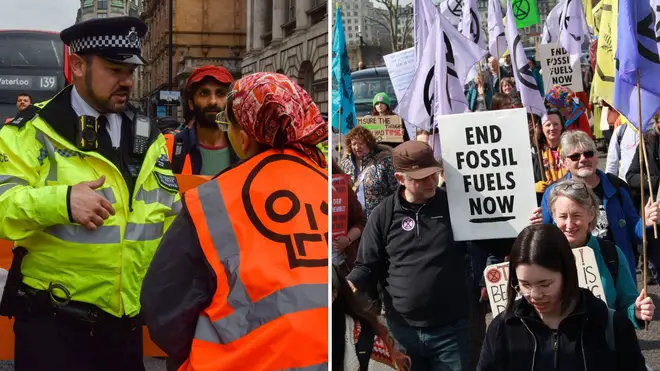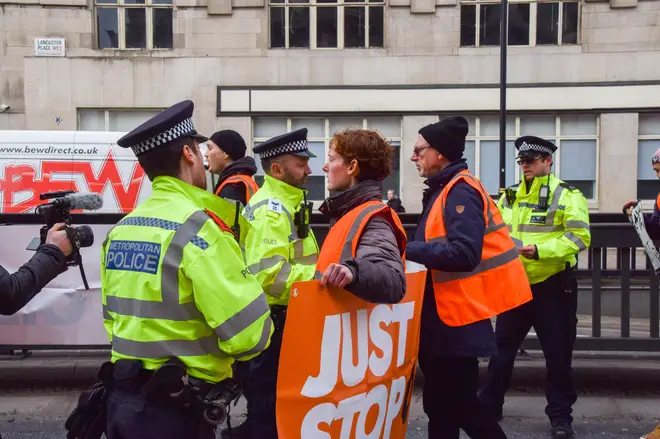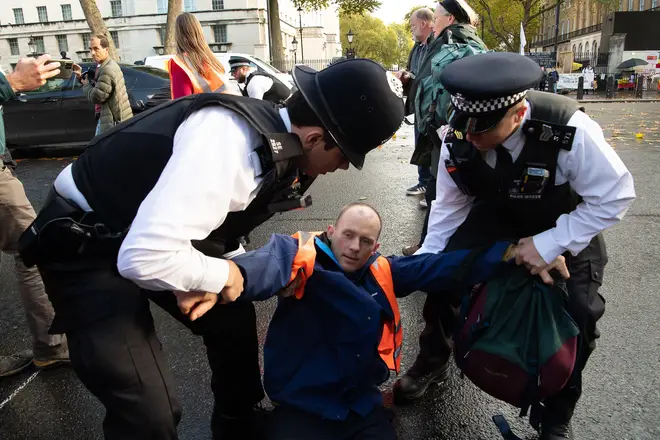
Nick Abbot 10pm - 1am
28 April 2023, 08:53 | Updated: 28 April 2023, 09:00

Slow-walking protesters are to be brought to a halt as police are to be given power to stop them under new government legislation.
New legislation from government will give police officers greater authority to stop slow-walking activists from causing disruption on the roads of England and Wales.
It comes after environmental activist group, Just Stop Oil, held slow march demonstrations in central London earlier this week – stirring up trouble between protesters, police and drivers on their morning commute.
The government has introduced the new law as it says there is not enough clear guidance for police on what powers they can exercise over these types of activists.
Just Stop Oil and Extinction Rebellion are just some of many groups who have taken to the slow-walking tactic, as it is more criminally ambiguous, making it tougher to police.
Footage shared online from the protests earlier this week shows police issuing warnings to members of the public trying to move the eco-protesters out of the way to help people get to work.
One man received a warning he was on the brink of arrest, as the officer reminded him pushing people "is assault".

Currently, officers have the power to enforce conditions for planned protests that are likely to cause “serious disruption to the life of community”.
However, despite these powers legally being available to the officers, the guidance around using them is unclear – which has left officers hesitant to enforce them.
Under the new law, police will be able to “clear the roads” of slow marching protesters.
These powers will also allow officers to consider the wider geographical area, rather than just local terrain, when deciding how to act.
Home Secretary Suella Braverman said when passed through parliament, it would “clearly define” when police are allowed to stop “selfish” protesters from “wreaking havoc in people’s everyday lives.”
She also added: "It permits the police to clear the roads of slow marching protesters who are hell-bent on causing chaos across the UK.”
Read more: Calls for police and crime commissioners to be scrapped as they cost £100m in four years

It is likely the legislation will not come into effect for at least several weeks, as it must be approved by parliament before it takes effect.
The proposed legislation follows the recent passing of the Public Order Bill, which is to become law shortly and will criminalise people who lock themselves to objects and buildings, including via the use of glue – a tactic which has been used by Just Stop Oil activists.
People who still use these strategies after the law is enforced will risk facing 12 months in jail.
Police chiefs leader BJ Harrington said: “We are committed to responding effectively to activists who deliberately disrupt people’s lives through dangerous, reckless and criminal acts.”
Civil rights groups have hit out at the government, however, labelling the legislation “deeply troubling” and “neither necessary nor proportionate", with one of their main concerns being that it restricts the public’s freedom of expression and peaceful assembly.